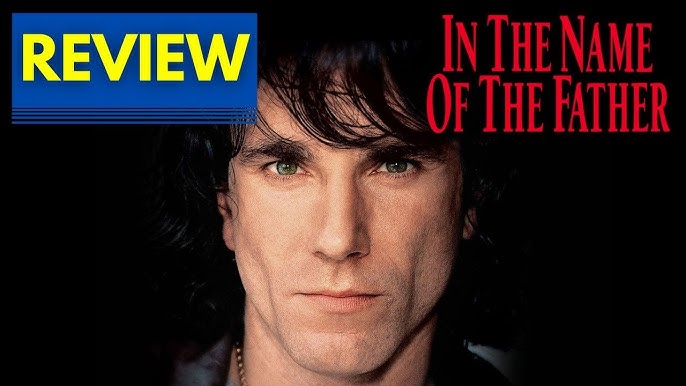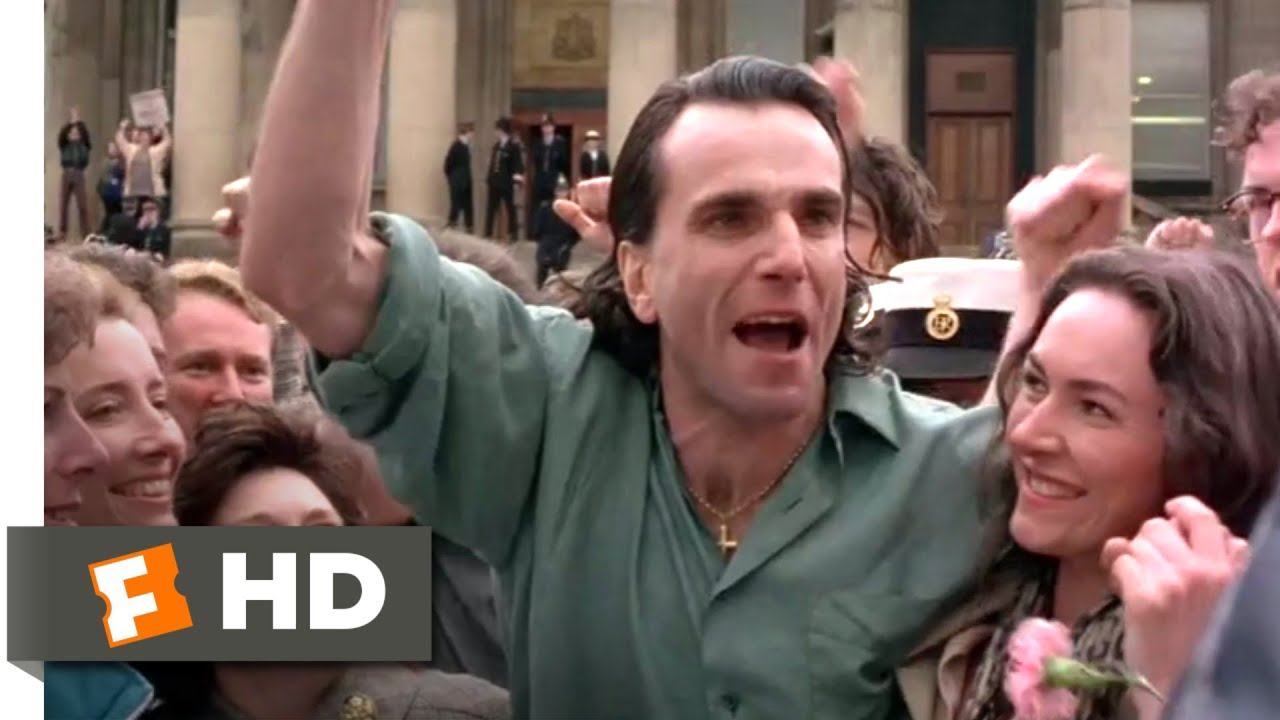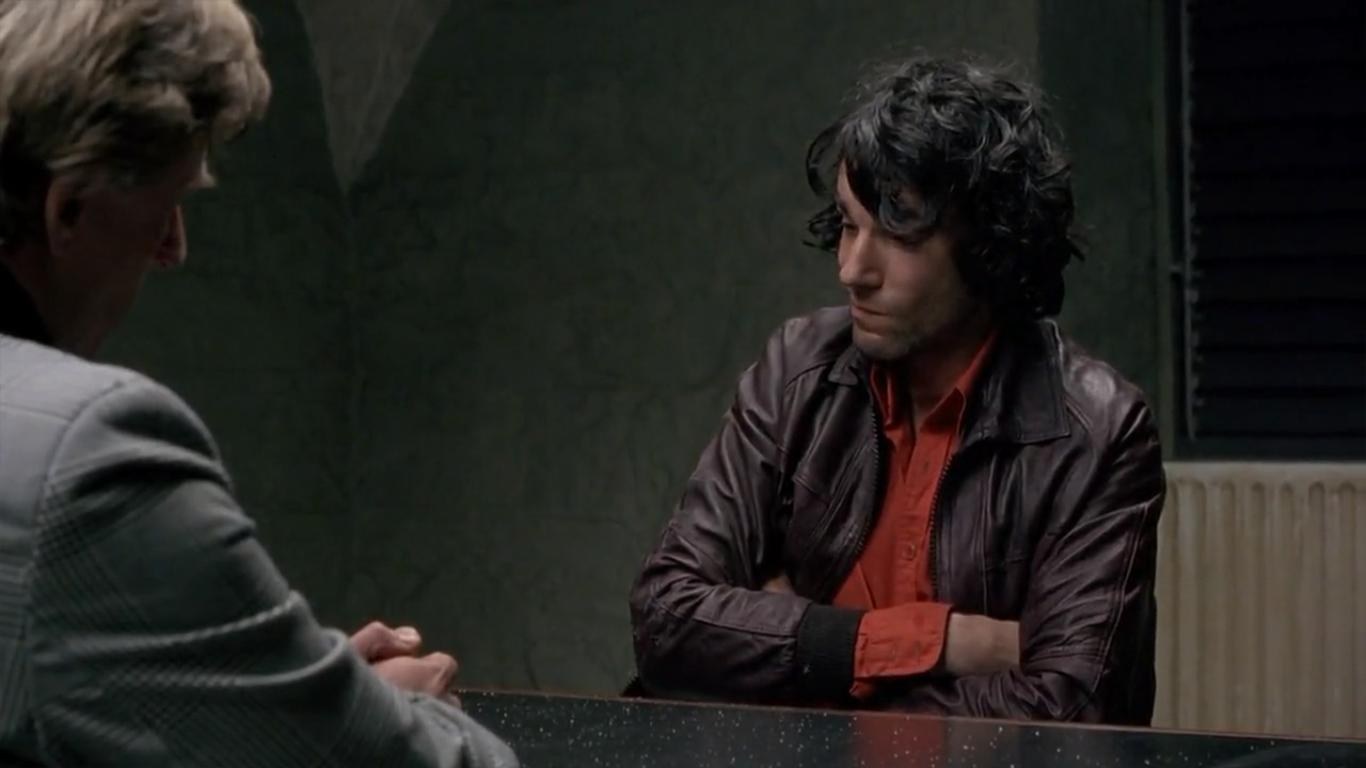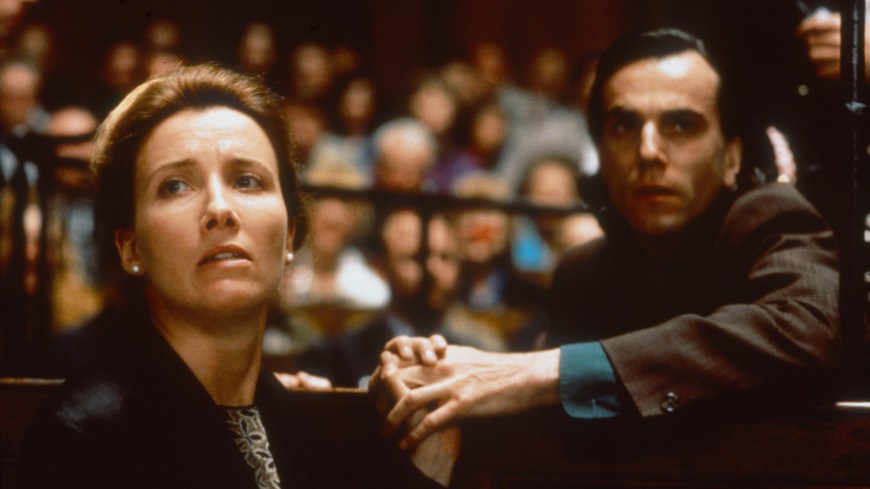In the Name of the Father (1993)

In the Name of the Father (1993) is a powerful biographical crime drama directed by Jim Sheridan. The film is based on the true story of the Guildford Four, four innocent individuals who were wrongfully convicted of bombing a pub in Guildford, England, in 1974. The bombing resulted in the deaths of four British soldiers and one civilian. The movie explores themes of justice, corruption, and the emotional toll of wrongful imprisonment, offering a stark and gripping portrayal of the flawed legal system.
The film follows the life of Gerry Conlon, played by Daniel Day-Lewis, who, along with his father Giuseppe (played by Pete Postlethwaite), is falsely accused of the Guildford pub bombing. The story details Gerry’s journey from being a young man with a troubled past to a wrongfully convicted prisoner. The film takes the audience through his arduous battle to prove his innocence, as he and his family face immense hardship in their fight against a corrupt justice system. The dramatic narrative shows how the personal and emotional aspects of their lives intertwine with the political and social issues of the time.
At the heart of the film is Gerry Conlon, whose transformation from a naive young man to a determined and courageous individual is portrayed in an award-winning performance by Daniel Day-Lewis. Gerry’s father, Giuseppe, is a man of integrity and resilience, and his relationship with Gerry forms the emotional core of the story. The film also introduces several other key figures, including the lawyers and activists who play a role in the eventual exoneration of the Guildford Four. The development of these characters highlights themes of family loyalty, justice, and perseverance.

In the Name of the Father delves deeply into the injustices of the British legal system, particularly in the context of the Troubles in Northern Ireland. The film explores the themes of wrongful conviction, police brutality, and political manipulation. Through the story of the Guildford Four, it underscores the devastating consequences of systemic failure and the human cost of institutional corruption. The film also highlights the importance of fighting for justice and the bond between family members who endure unimaginable hardships together.

Jim Sheridan’s direction brings a raw and visceral quality to In the Name of the Father. The film’s cinematography, by Peter Biziou, uses a muted color palette and stark, realistic lighting to convey the grim and oppressive atmosphere of the prison and the trials faced by the Conlon family. The tense, emotionally charged scenes are complemented by subtle but effective camera work that focuses on the inner turmoil of the characters. Sheridan’s masterful storytelling captures the emotional weight of the real-life events, making the film both a personal and politically charged narrative.

In conclusion, In the Name of the Father is a haunting and thought-provoking film that sheds light on a tragic chapter in British history. With stellar performances, particularly from Daniel Day-Lewis and Pete Postlethwaite, and a compelling, true-to-life story, the film is a poignant reminder of the importance of justice and the human cost of wrongful convictions. Jim Sheridan’s direction and the film’s powerful themes make it a memorable and impactful cinematic experience that challenges viewers to question the integrity of institutions meant to protect the innocent. In the Name of the Father is a profound tribute to the resilience of the human spirit in the face of grave injustice.











